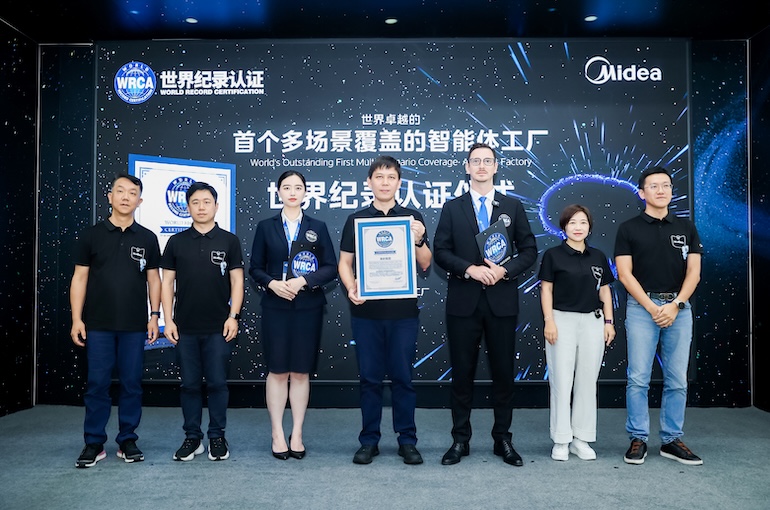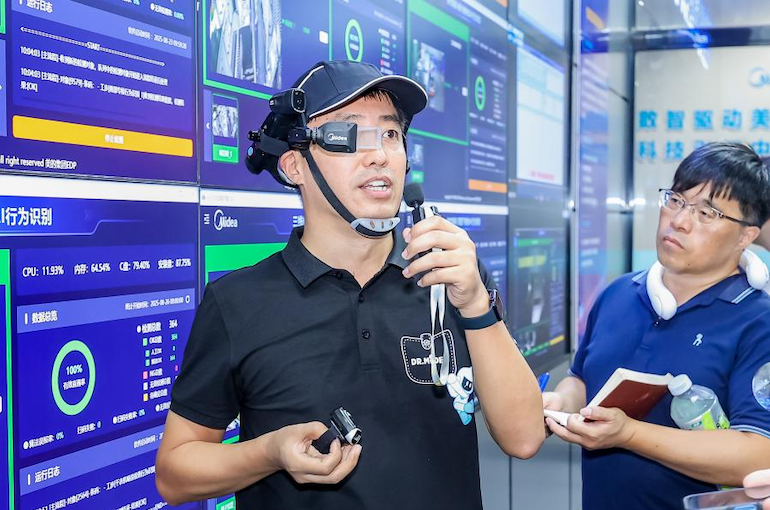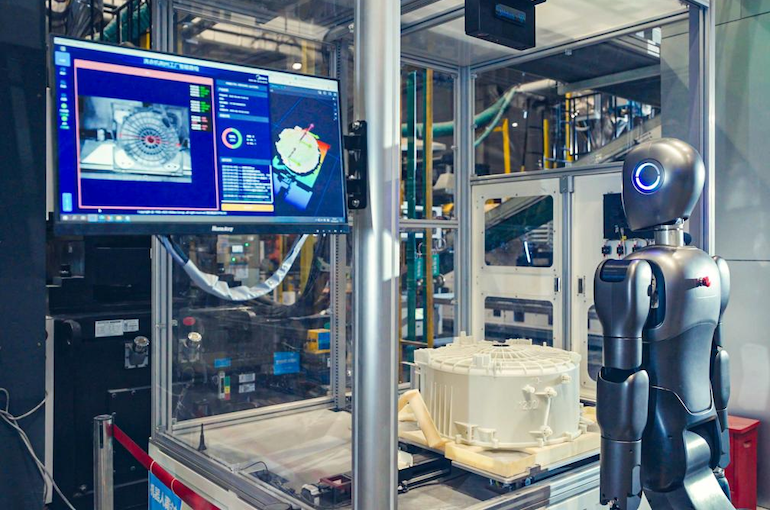 Chinese Home Appliance Giant Midea Receives World's First AI Agent Factory Certification
Chinese Home Appliance Giant Midea Receives World's First AI Agent Factory Certification(Yicai) Aug. 29 -- The pilot plant in Jingzhou of Chinese home appliance giant Midea has received the world's first artificial intelligence agent factory certification from World Record Certification.
The washing machine factory, located in Jingzhou, China's central Hubei province, has deployed 14 AI agents across 38 core business scenarios, including energy, production, quality control, operations, and maintenance, Maksim Kriukov, certification officer at WRCA, said at a press conference on Aug. 26.
Relying on the so-called factory brain -- the task scheduling center -- the AI agents work together to establish a new benchmark for efficient, flexible, and resilient smart factories, Kriukov explained.
By extensively using AI technologies and automation robots, the Jingzhou factory can perform tasks that previously required several hours in only a few minutes, improving its operational efficiency by over 80 percent, Lv Hongzhi, general manager at the plant, said at the press conference.
Midea has developed an AI-powered headset that assists workers in material quality inspections, reducing the time needed for a single inspection from 15 minutes to just 30 seconds, Lv noted. Coordinated by the factory brain, the device uses AI agent-based visual technology to compare the captured images of materials with the blueprints in the system, analyze them based on historical inspection records, and output inspection results.

"We envision the AI agent factory as a living factory," Lv pointed out. "It not only improves our work efficiency through digital tools but also interacts with the intelligent terminals and physical environment, achieving greater autonomy."
The Jingzhou factory has a total planned investment of CNY5 billion (USD700 million), with CNY3 billion already invested in the first-phase project, which was completed and put into operation in 2022. It primarily produces washing machines and dryers, with an annual output capacity of up to 15 million units.
Humanoid Robots Empower Dark Factories
Midea uses various robots in different industrial scenarios at its Jingzhou plant, including Miro, a humanoid robot that operates under the coordination of the factory brain as the core execution unit of the AI agents. It can perform tasks such as quality inspection, daily management, and production safety maintenance.

Despite the rapid development of the humanoid robot industry, large-scale application is still in the exploratory stage, Midea's Chief Technology Officer Wei Chang said.
Midea's demonstration of its Jingzhou plant shows that humanoid robots, under the coordination of the factory brain, can achieve multi-agent collaborative operations, effectively improving operational efficiency and laying a technological foundation for the realization of dark factories, Wei noted.
Humanoid robots still have limitations, such as the conflict between efficiency and versatility, according to Xi Wei, director of Midea's humanoid robot innovation center.
Compared to traditional industrial robots, humanoid robots have a more complex structure and are model-driven rather than program-driven, Xi noted, adding that this means that they require further technological advancements.
"We are planning the next-generation product configuration, which we call super-humanoid robots," Xi revealed. "They are still under development in the laboratory, but we hope to unveil them next year."
Looking ahead, Midea will use the Jingzhou factory as a starting point to rapidly replicate its AI agent factory solutions across its other plants worldwide, helping China's manufacturing sector secure a more advantageous position in the global industrial landscape, Midea's Chief Digital Officer Zhang Xiaoyi said.
Editor: Futura Costaglione